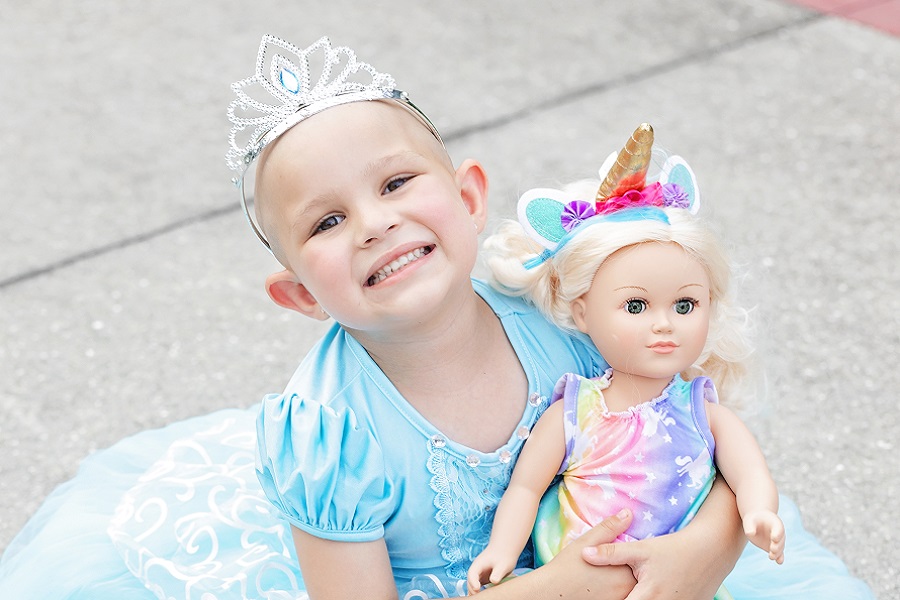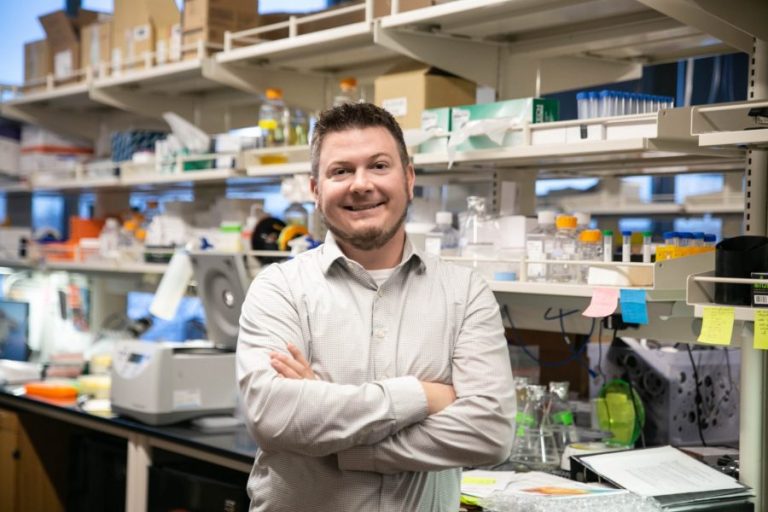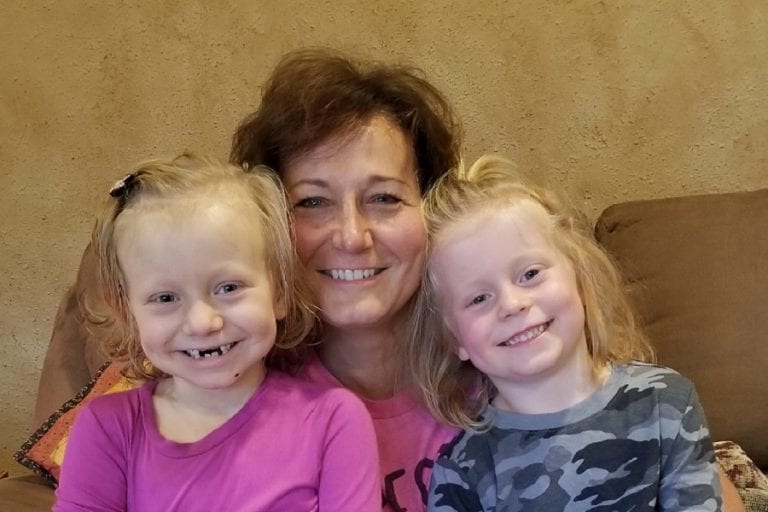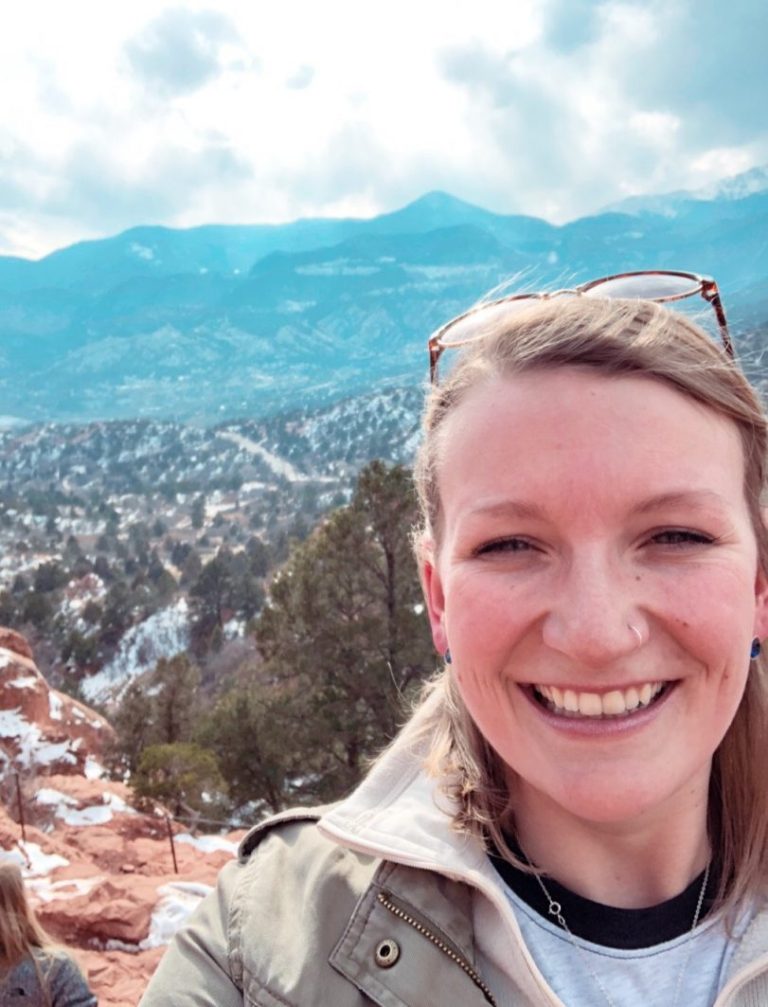Tiffany remembers hating oncology when she was training to become a nurse. It’s always difficult and often heartbreaking, and she knew that wasn’t the area of medicine she wanted to practice. So when her daughter, Liliana, was diagnosed with cancer, she found herself spending more time than she ever would have imagined on the pediatric oncology floor of the hospital, wondering how in the world this could have happened to her family.
“I kept beating myself up, thinking, ‘How did I miss this?’” Tiffany said. “I guess it’s just hard to imagine cancer ever happening to your child.”
Liliana (or Lily to her friends and family) was just 3 years old when she was diagnosed with leukemia, which crept in slowly – first it looked like anemia, because Liliana was pale and tired often. Her parents first started to worry when their usually cheery and energetic toddler was so tired she was asking them to carry her everywhere. When iron supplements didn’t seem to help Lily, Tiffany made an appointment with the pediatrician. Things went from bad to worse very quickly.
“She told me how low Lily’s hemoglobin was and told me to take her right to the hospital,” Tiffany said. “The Emergency Room doctor told us he suspected leukemia, and when oncology came to talk to us, she was officially diagnosed. It was a little easier to digest it for me because I understood the medical terms, but my husband was spinning – it was really rough for him.”
Lily was admitted to the hospital for 10 days and started chemotherapy right away. She was able to get into a clinical trial for a new drug that researchers believe could be more effective and less harmful than other cancer treatments.
“We’re participating because we know trials like this help find less harsh treatments, and we want to find ways to make things easier and more tolerable for kids like Lily,” Tiffany said.
When Tiffany found out how little funding there is for these kinds of clinical trials, she was flabbergasted.
“It’s absolutely insane. More people need to be aware of this,” Tiffany said. “These are kids who are just starting their lives, they need this research."
Part of why research is so needed is that treatments for kids like Lily come with far too many side effects. Some of the side effects from Lily’s treatment include:
- Cognitive delays – Lily’s learning isn’t progressing as fast as other kids her age. She missed over 60 days of school this past year, so the plan is to repeat Kindergarten starting in the fall. Tiffany remembers watching Lily take a cognitive test, where she was shown cards on a computer screen and asked to check “yes” or “no” to indicate if she’d seen them before. “I was standing right behind her trying not to cry… she got less than a handful right.” Tiffany said. “I’m so glad she’s alive but days like this make me want to scream for her.”
- Weakness – Lily has too many days where she’s not feeling strong enough to play and explore. She sometimes falls asleep at her desk at school, and she’s been falling often. Cancer and treatment have robbed her of childhood memories – on a recent trip to Disney World, Lily was often too tired to enjoy the experience. She’s starting physical therapy to help her get stronger.
- Constant fevers, rashes and blood sugar issues - Treatment weakens Lily’s immune system, so any sickness needs to be taken seriously. Tiffany wishes some of these issues would subside so Lily could find her groove and just enjoy being a kid. “I know everyone’s journey is different, but it’s just so difficult to watch.”
When Lily is feeling well, she’s a giggly 6-year-old who loves her older siblings and is obsessed with unicorns. She isn’t a fan of getting dirty, but she loves to play pretend and Tiffany says she’s funny, shiny and full of life. Tiffany shares Lily’s giggles and smiles along with her tears – it’s important to her that people see the reality of cancer, even when it’s hard.
Tiffany says cancer has forced Lily to mature beyond her years. She uses medical terms, rather than kiddy names, to describe what she’s going through. When nurses access her port with a needle, she cries, but doesn’t flinch or squirm. Her siblings, however, have been hit hard by the diagnosis. After all, childhood cancer is truly a whole-family disease.
“My oldest daughter is very much a realist, so the first thing she asked was if Lily could die,” Tiffany said. “I said yes, that’s a possibility, but if you have to have cancer, Lily’s is the best kind you can have – around 90% of kids with Lily’s type of leukemia survive, and we’re going to do everything we can to keep her in that 90%.”
Lily’s older brother, Brody, took the diagnosis especially hard – he’s deeply empathetic, and all he wanted to do was take away his little sister’s pain. He was so distraught that he was having thoughts of suicide. Tiffany says she shares this because she wants people to know that cancer profoundly impacts siblings, and hopes her family’s experience will help others catch any warning signs of distress or suicidal thoughts in their own families.
Tiffany says she’s been on an emotional roller coaster all throughout treatment, and she wants other parents to know that you don’t need to pretend that you have it together all the time.
“Breathe, don’t Google, and don’t read all the material they give you right away,” she said. “Give yourself time to grieve and process, and know that you’re not the only one going through this.”
Lily’s cancer journey is already inspiring her family and friends – a network of friends and fellow military families have started sporting “Lily Strong” t-shirts to honor her. Tiffany says the support her family has received has carried her through some low moments. The mantra reminds her that her family isn’t alone, and that her daughter’s story could create a better world for kids who are diagnosed after her.
“Even if her story touches one person, and that person spreads the word and touches a few more people… maybe those people will donate to help kids in the future,” she said. “If we can be part of helping another family get through this, maybe that’s our calling.”
Your support leads to better treatments for kids like Liliana.
Leukemia treatment has been a difficult road for Lily. But the research behind it would not have been possible without supporters who are dedicated to funding better, safer cancer treatments for kids. Your donation will help researchers create treatments that are more effective, with fewer long-term side effects, for kids like Lily.




